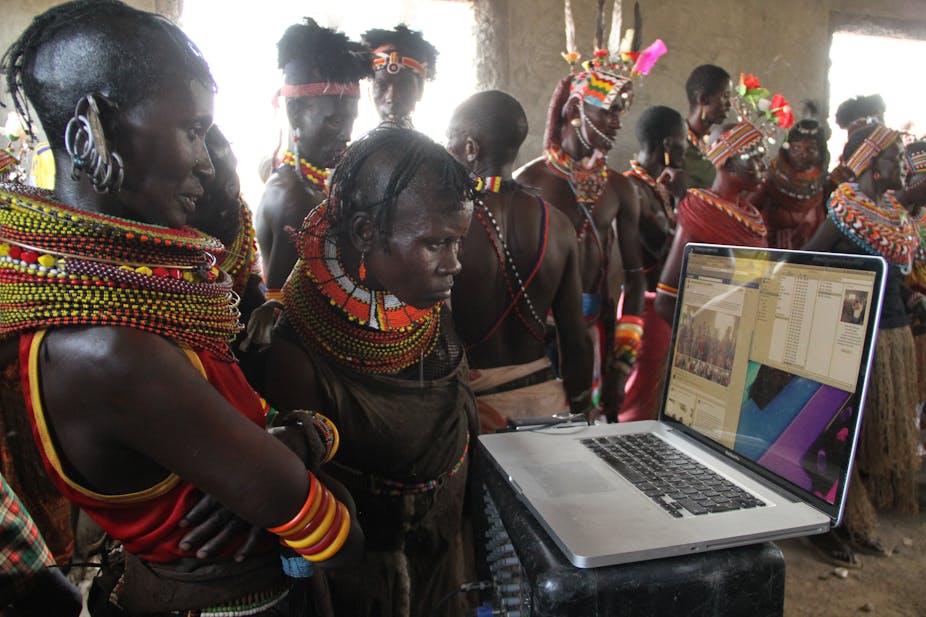Questions related to African values in early childhood development and education are crucial. At this level of learning, young children are in their formative years. Their character is moulded in a system of values that originate from within their family and society.
As in many other African countries, formal education in Kenya is largely a system of values and belief systems that originated in the Western world. Historically this bias was introduced through humanitarian programs provided by missionaries and civic organisations.
The effects can be profound. Culture that is vital for communities’ socioeconomic survival and future can be forgotten or lost entirely.
This is starkly visible within the nomadic pastoralist communities of Turkana, northern Kenya. Here, early childhood education draws most of its influences from Western education and curriculum, alienating children from their own culture and traditions.
Not in harmony
Discussions on curriculum content related to values, language of instruction and the essential skills required by children to support the family’s needs for socioeconomic survival do not happen within popular narratives of education.
Instead, pastoralist communities become passive recipients of an education over whose content they have no control.
Interactions with Turkana families suggest that the skills acquired by children from schools are not in harmony with their families’ everyday socioeconomic survival practices.
One example of this is the loss of the Turkana language. Poverty, combined with high illiteracy rates, and the lack of literacy materials in Ng'aturkana (the Turkana language), contribute to the use of English as the language of early childhood education.
Alienates children
Curriculum and school timing also don’t cater for a nomadic lifestyle’s requirements. After school, children cannot easily participate in the family’s survival activities – herding livestock, milking, watering animals, market activities and taking care of siblings.
The school culture instead alienates the children from their nomadic families and this can be a cause of apathy in the families. In comparison, children who had no opportunity to go to school are united with their families because they have developed suitable cultural skills.
Turkana people are aware that a good education leads to better jobs. But they are also aware that the majority of their children become school drop-outs. In Turkana, children drop out of school due to a lack of interest and motivation. This is further exacerbated by schools in the region that lack teachers and good learning facilities, resulting in mass failures.
The dropouts are then labelled by their families as drunkards and disrespectful as they tend to end up idle. They can no longer fit in the traditional survival lifestyles of their parents and they are pulled to urban centres. Here, they are seen to turn to alcohol or drugs instead of being at home to support their poor families.
So, the practice in Turkana households is to divide the children. Some go to school and others remain at home to support the family by taking care of herds and doing chores. The Turkana describe this strategy as standing with two legs – one leg in education and another leg in the culture.
Elite misconception
Through numerous review commissions Kenya has sought to tackle issues of cultural relevance and African heritage. However, these have not been critically reflected in practice, as education officials tend to disregard the recommendations of the reports.
One of the barriers to this is the majority of the African political elite and educators live with the misconception that blending modern education with African cultural values and belief systems is taking them away from modernisation and progress. They believe that what is old and traditional is automatically backward.
This is a colonial relic. Africa’s political elites, who were the beneficiaries of Western colonial education, believed the best education was found in schools that were initially reserved for European children.
These elites sent their children to European schools to get the “best” education, defined in terms of their ability to speak fluent English.
To this day, Kenyan families will celebrate when a child speaks English in their childhood. This attitude towards the English language has influenced teachers even in rural nomadic areas who disregard the child’s native language in education.
The way forward
Kenya’s education system should be constructed in a manner that keeps identity defining traditional core values and beliefs in the curriculum.
The education system would be an integrated product of local and international belief systems, knowledge, languages and technology. This would enable young Africans to develop their real identity while acquiring the necessary skills for living and interacting in a global society.
My critics would say that this is an old way of thinking. They’d argue that traditional African methods of parenting and learning have been overtaken by modernisation. The elite would argue that culture is dynamic and that we don’t need to stick to ancient ways of child rearing.
The solution could be provided by experts, trusted with education in Kenya, who are conscious about remaining patriotic to cultures. Education should be an instrument for culture sharing instead of being a monopoly of Western culture and languages.
This should start at home. African families should be committed to ensuring children carry their identities even as they develop new knowledge and skills at school. These values must be protected by African governments through education systems.

